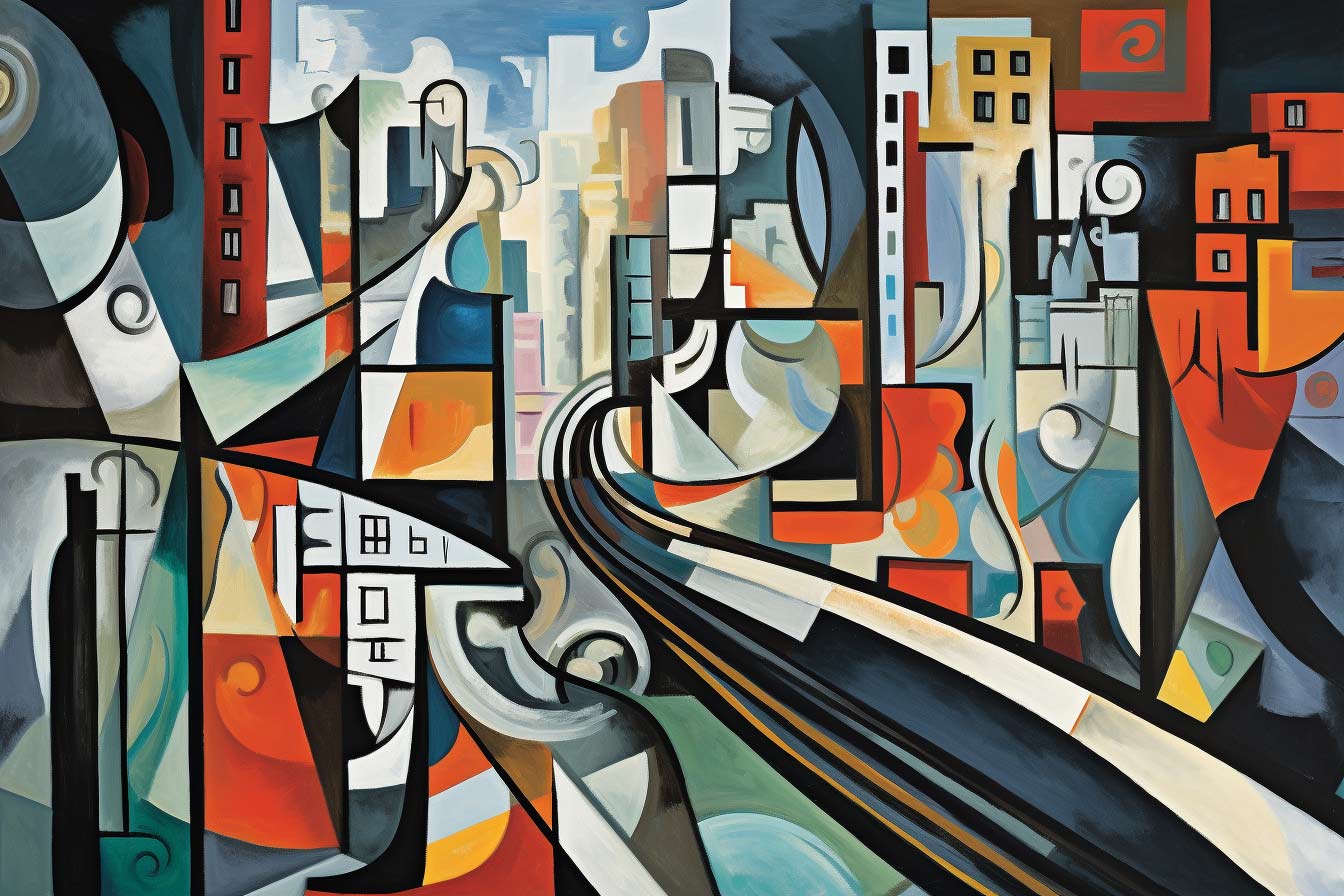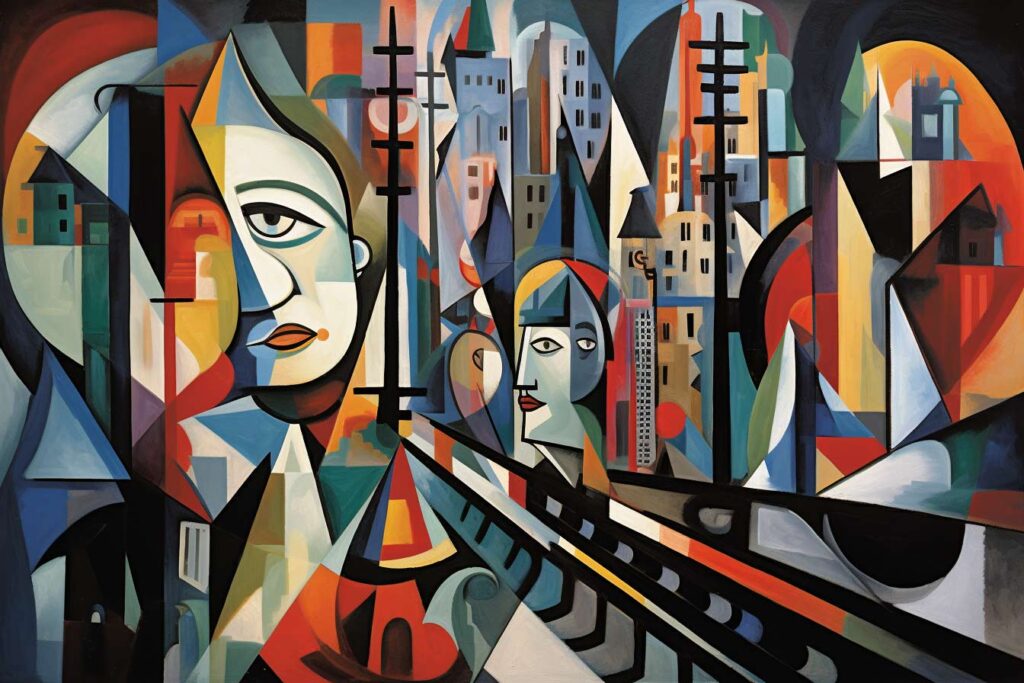Life in the Subway: Capturing Urban Pulse Through Collage Art
Beneath the sprawling tapestry of the metropolis lies a pulsating world, both emblematic of modern progress and the ceaseless cadence of humanity in motion. This subterranean realm, with its echoes of hasty footsteps and distant trains, finds a vivid counterpart in the realm of Cubist painting. ‘Life in the Subway’ beckons artists to plunge into the heart of urban existence, deconstructing and then reassembling its myriad elements into a collage that brims with life.
The Labyrinth Below: Stations, Wagons, and Souls
As one embarks on this visual odyssey, it is not just the architectural edifices of stations that demand representation, but the very essence of their function and form. Staircases spiral into multiple dimensions, platforms stretch into fragmented perspectives, and wagons – those steel chariots of the city – seem to disassemble and reform, capturing the transient nature of every journey.
And amidst this setting, we find our most poignant subjects: the commuters. Whether portrayed in the stillness of contemplation or the rush of daily pursuits, each figure becomes a symbol, a shard reflecting the larger urban narrative.
Chronicles of Motion: Integrating Time and Path
Yet, this intricate mosaic is not solely shaped by brushstrokes and palette knives. To truly encapsulate the rhythm of the subway, artists are drawn to the tangible imprints of its existence. Train schedules, those precise chronicles of motion, find their place on the canvas, narrating tales of punctuality and expectation. Route maps, with their serpentine paths and nodes, are interwoven, lending a structural clarity to the perceived chaos, and reminding the viewer of the myriad possibilities each journey holds.
A Voyage Beyond the Canvas
Life in the Subway transcends mere depiction. It is a symphonic celebration of urban vitality, a Cubist tapestry where every fragment, be it paint or paper clipping, resonates with the heartbeat of the city. In this intricate dance of forms and functions, artists and viewers alike are transported, experiencing art that not only depicts movement but truly moves the very core of one’s being.

